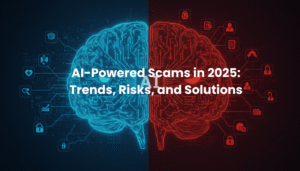
In today’s digital age, blockchain technology has emerged as a revolutionary concept with the potential to transform various industries. From finance to supply chain management, blockchain offers a decentralized and secure platform for transactions and data management. In this article, we will delve into the world of blockchain, explore its underlying principles, and discuss its potential applications across different sectors.
What is Blockchain Technology?
Blockchain is a distributed ledger technology that enables the secure and transparent recording of transactions. It consists of a chain of blocks, where each block contains a set of transactions. These blocks are linked together using cryptographic hashes, forming an immutable and tamper-proof record.
Key Features of Blockchain:
a) Decentralization: Unlike traditional centralized systems, blockchain operates on a peer-to-peer network, eliminating the need for intermediaries and providing greater transparency and trust.
b) Security: Blockchain uses cryptographic algorithms to ensure the integrity and immutability of data, making it resistant to fraud and unauthorized modifications.
c) Transparency: All transactions recorded on the blockchain are visible to participants in real-time, promoting accountability and reducing the risk of fraud.
Blockchain Applications:
a) Financial Services: Blockchain has the potential to revolutionize the financial industry by enabling faster, more secure, and cost-effective transactions. It can streamline cross-border payments, enhance identity verification processes, and provide efficient smart contract solutions.
b) Supply Chain Management: Blockchain technology can transform supply chain operations by improving transparency, traceability, and efficiency. It allows stakeholders to track the movement of goods, verify authenticity, and ensure compliance with regulations.
c) Healthcare: In the healthcare sector, blockchain can enhance data security and interoperability. It enables secure sharing of patient records, facilitates drug traceability, and ensures the integrity of clinical trials.
d) Real Estate: Blockchain can simplify property transactions by eliminating the need for intermediaries and reducing paperwork. It enables transparent and secure title transfers, streamlines property management, and enhances the overall efficiency of the real estate market.
e) Voting Systems: Blockchain-based voting systems can enhance the security and transparency of elections. It can prevent voter fraud, ensure accurate vote counting, and increase trust in the democratic process.
Challenges and Future Outlook:
While blockchain holds immense potential, it also faces certain challenges. Scalability, energy consumption, regulatory frameworks, and interoperability are some of the key areas that need to be addressed for widespread adoption.
Looking ahead, the future of blockchain technology appears promising. As more industries recognize its potential, we can expect to see increased investment, research, and development in blockchain-based solutions. From enhancing cybersecurity to revolutionizing digital identity management, blockchain has the power to reshape our digital landscape.
Blockchain technology is disrupting traditional systems and opening up new possibilities across industries. Its decentralized nature, security features, and transparency make it a powerful tool for streamlining processes and enhancing trust. By understanding the underlying principles of blockchain and exploring its potential applications, businesses and individuals can unlock the transformative power of this technology and stay ahead in the digital era.



